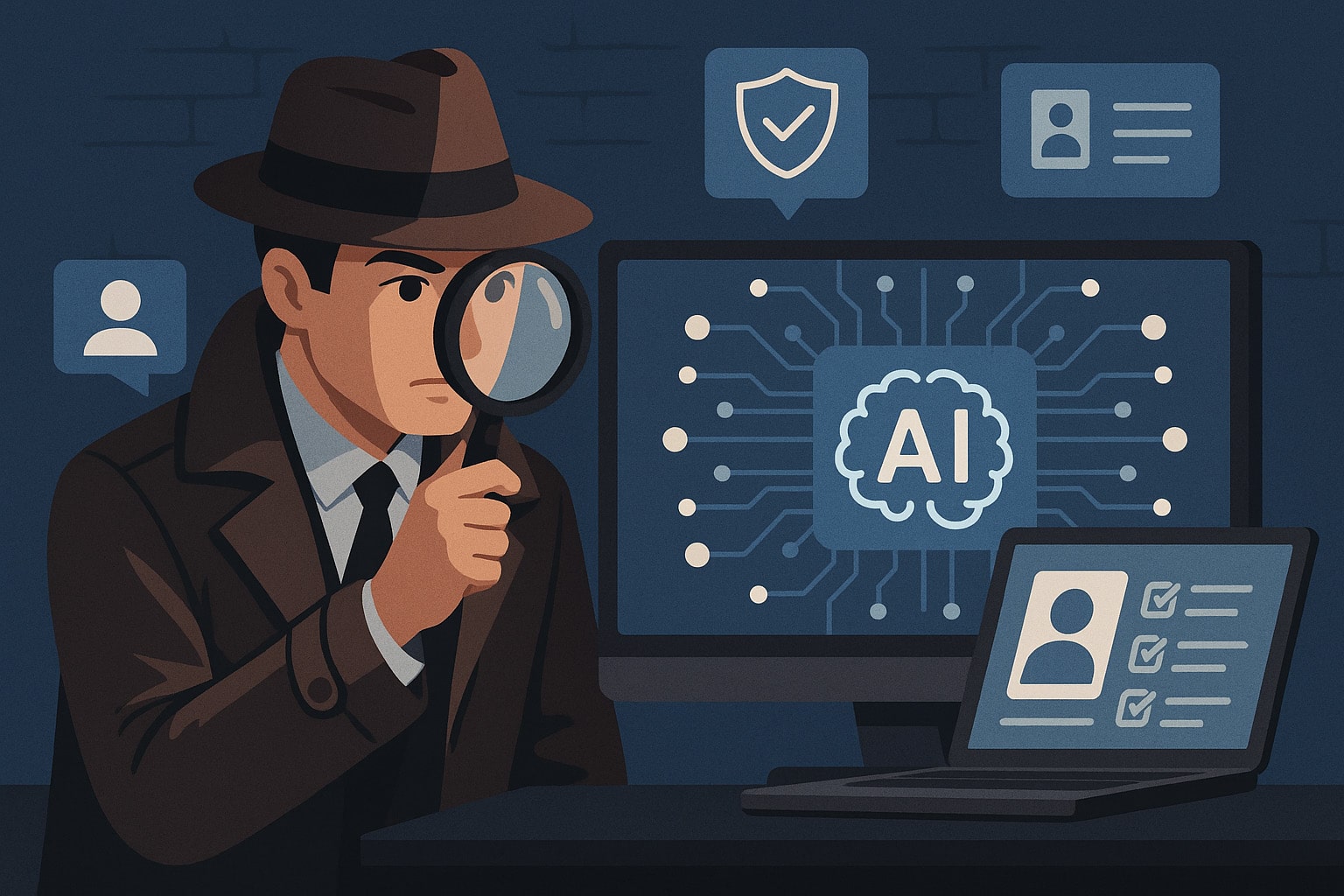Introduction: Technology Meets Traditional Investigation
Private investigation has always combined two key elements: gathering information and interpreting human behaviour. In recent years, the tools investigators use have undergone rapid evolution. One of the most talked-about developments is artificial intelligence (AI). From data analysis to online searches, AI is already transforming the way investigators work.
But what does this mean for clients? Can AI replace a human investigator? And how do professionals utilize this technology responsibly, especially in Canada, where privacy laws are particularly stringent?
Current Applications of AI in Private Investigations
1. Background Checks and Open-Source Intelligence (OSINT)
Modern investigations involve massive amounts of data — from public records to digital footprints. AI-powered search tools can scan, sort, and cross-reference this information much faster than a person manually digging through databases. For example, AI can:
- Identify patterns in public records
- Link names, addresses, and phone numbers across multiple platforms
- Detect inconsistencies in online profiles
This saves time and ensures no detail is overlooked.
2. Facial Recognition and Image Analysis
In some jurisdictions, AI facial recognition software is used to match photos against large databases. Investigators may use image-enhancement tools to clarify blurry footage or identify objects in video evidence. While not every technique is admissible in court, these tools can give important leads.
3. Data Pattern Recognition
Corporate investigations often involve analyzing financial records or employee behaviour. AI can flag suspicious patterns, such as unusual expense reports, duplicate invoices, or irregular login activity. This provides investigators with a trail to follow in cases of fraud or workplace misconduct.
4. Social Media Monitoring
AI tools can track online activity and highlight suspicious or hidden social media accounts. For example, someone attempting to conceal infidelity or fraud may still leave behind a digital trail. AI makes this trail easier to uncover.
The Limitations of AI
Despite the hype, AI is not a magic solution. There are significant limits:
Context is Missing – AI might highlight a connection, but it cannot always determine whether it is meaningful. For example, two people liking the same social media page doesn’t prove they have a relationship.
False Positives – Automated tools can misidentify faces, locations, or behaviours. Without human review, mistakes can occur.
Legal Restrictions – In Canada, including Quebec and Ontario, strict laws govern surveillance, the use of personal data, and the gathering of evidence. AI cannot bypass these laws, and any information obtained illegally could be inadmissible in court.
How Professional Investigators Use AI Responsibly
The best private investigators do not rely solely on AI. Instead, they use it as a complement to traditional methods. Here’s how responsible agencies approach it:
Human Judgment Comes First
AI may scan thousands of records, but only a licensed investigator can decide what is relevant and how it fits the case.
Compliance With Laws
Tools are used within the boundaries of Canadian privacy and investigative legislation. Licensed investigators know where AI can be applied legally — and where it cannot.
Enhanced Efficiency Without Sacrificing Accuracy
AI speeds up repetitive tasks (such as data cross-checking), allowing investigators to focus more on the human aspects of cases, including interviews, surveillance, and analysis.
Looking Ahead: The Future of AI in Private Investigations
As technology evolves, AI will likely play an even greater role:
Predictive Analytics
In corporate fraud prevention, AI may soon be able to forecast risks before misconduct occurs by identifying red flags in employee or financial behaviour.
Smarter Counter-Surveillance
AI detection devices are becoming more sophisticated, making it easier to spot hidden cameras, GPS trackers, or spyware.
Integration With Human Expertise
The most effective investigations of the future will combine the speed and power of AI with the judgment, ethics, and adaptability of human investigators.
Conclusion: AI Enhances, But Never Replaces the Investigator
Artificial intelligence is transforming the investigative field, but it is not replacing professionals. Instead, it is a powerful tool that enables investigators to work more efficiently, analyze larger datasets, and uncover details that might otherwise remain hidden.
At the same time, human expertise remains essential. A licensed private investigator brings judgment, discretion, and ethical decision-making — qualities no algorithm can replicate.
If you need answers backed by both technology and human expertise, our agency is here to help. Contact us today for a confidential consultation.

